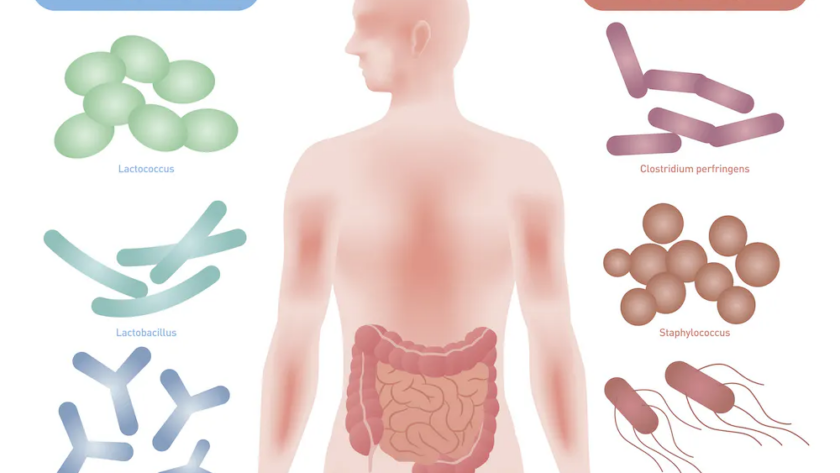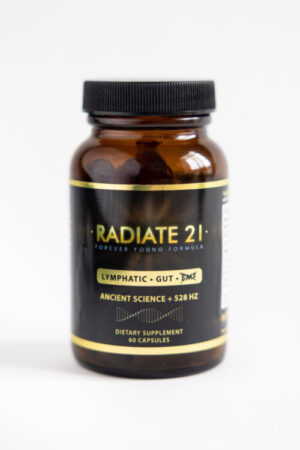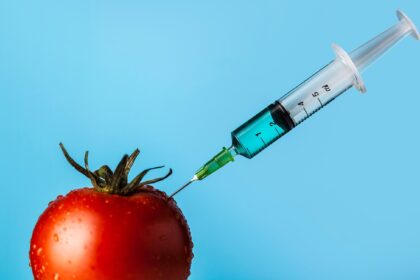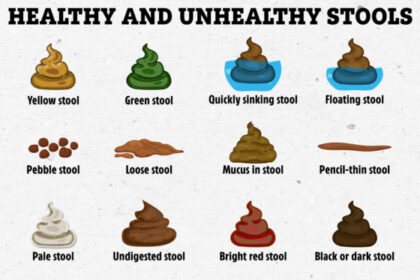Unseen by the naked eye, a pivotal battle for your health is being fought deep within your digestive tract. Trillions of friendly bacteria, collectively known as your gut flora, stand on the front lines defending your body against chronic illness and disease.
When properly balanced and diverse, this community of microorganisms trains your immune cells, produces vitamins and neurotransmitters, digests your food, and keeps systemic inflammation in check. However, modern diets high in sterile, overly processed foods are like a wrecking ball swinging through your microbiome, decimating populations of these beneficial “good bacteria.”
By destroying your gut flora numbers and diversity, processed foods disrupt the delicate balance and allow pathogens like bad bacteria, yeasts and parasites to rapidly colonize and thrive. This leaves your body more vulnerable to autoimmune disorders, blood sugar imbalances like diabetes, deteriorating mental health, and more. The key to fortifying your body’s defenses is first identifying and eliminating the foods that deliver a crushing blow to your microscopic allies.
In this article, we will reveal the top 7 gut flora destroyers you must avoid to cultivate a disease-resistant microbiome. You’ll learn why these harmful foods breed chronic illness by promoting the growth of pathogenic microbes and inflammation while suppressing your beneficial bacteria.
Follow our simple dietary strategies to starve out the “bad bugs” and feed your gut flora the nutrients they need to keep you healthy. Take back control of your microbiome today by wielding food as your most powerful weapon against autoimmunity, metabolic disorders, poor mental health, and chronic disease. The battle for lifelong wellbeing starts in your gut – it’s time to equip your flora warriors for victory.
What Are Gut Flora?
Your gastrointestinal tract contains over 100 trillion microorganisms, primarily bacteria. Referred to collectively as your gut flora or microbiome, these microbes outnumber your own human cells 10 to 1.
This complex community resides mostly in your large intestine and serves many essential functions like digesting fiber, synthesizing nutrients, regulating immunity and metabolism, maintaining the gut barrier, and protecting against infection. The composition of your gut flora is deeply interconnected with your overall health and disease risk.
Why Is Gut Flora So Important?
Extensive research demonstrates the vital role gut flora plays in both physical and mental wellbeing. When balanced and diverse, the microbes inhabiting your digestive tract enhance immune function, reduce systemic inflammation, stabilize mood and energy, and provide many other benefits.
However, when certain harmful bacteria dominate, the consequences for health can be severe. Imbalanced gut flora has been linked to increased risk for chronic inflammation, autoimmune disorders, obesity, diabetes, anxiety, depression, and numerous other conditions.
Supporting colonization of beneficial bacteria allows them to keep populations of opportunistic and pathogenic microbes in check. But the loss of key commensal species enables illness-causing bacteria to thrive. Maintaining a well-balanced gut microbiome is essential for optimizing health and providing the first line of defense against disease.
Dangers of Modern Bread Yeast
For thousands of years, bakers relied solely on natural sourdough starters containing beneficial microbes to make bread rise. However, most modern bread production eschews traditional starters in favor of isolated, lab-cultured yeasts such as Saccharomyces cerevisiae. When consumed regularly in excess, these commercial yeasts can exhibit harmful effects within the gastrointestinal tract.
Unlike ancestral yeasts used in sourdough fermentation, modern bread yeasts resist and compete against human gut microflora instead of living in symbiosis. Once ingested, these yeasts enter the bloodstream where they rapidly reproduce, consuming vitamins, minerals, proteins, and other nutrients while releasing toxic metabolic byproducts. This can lead to intestinal permeability, fungal overgrowth, weakened immunity, and chronic degenerative illnesses.
Studies show that yeast cells from modern bread can survive within the human body for years after consumption. However, remarkably, just 5 years after eliminating all modern commercial yeast-risen baked goods, these undesirable yeast cells completely disappear from the bloodstream.
The High Cost of Convenience
Before the rapid industrialization of bread production in the early 20th century, entirely different yeast strains called “hops” were used to leaven bread. While slower to ferment and rise, these traditional yeasts lived in harmony with human digestive flora.
However, to intensify and speed up the bread-making process, large bakeries made the switch to so-called “thermophilic” yeasts that lack this symbiotic relationship. While these fast-growing yeasts significantly reduce dough fermentation time from days to mere hours, they also damage populations of beneficial bacteria vital for health.
This modern convenience of faster baked goods comes at a remarkably high cost. Unlike ancestral yeasts, these commercial varieties act as dangerous antagonists within the gut microbiome, actively killing off or inhibiting the very microbes humans need to produce nutrients, vitamins, amino acids, and other beneficial biologically active compounds required for full functioning and lifelong health.
Such unintended detrimental health consequences spotlight the problems with replacing proven traditional food preparation practices purely for the sake of efficiency and economic gains.
8 Yeast-Promoting Foods to Avoid
When we regularly eat commercial yeast-laden baked goods, the yeast entering our digestive tract and bloodstream begins rapidly reproducing and budding, aggressively consuming vitamins, minerals, proteins, and other nutrients while releasing toxins and harmful byproducts. This parasitic-like relationship can lead to increased intestinal permeability, systemic fungal overgrowth, weakened immunity, and chronic degenerative illnesses including cancer and brain diseases.
Many nutritional experts now consider modern, yeast-risen baked bread one of mankind’s most harmful food inventions. The specific commercial yeast varieties used widely today are officially classified as “conditionally pathogenic microorganisms” given their ability to cause illness under certain conditions of overgrowth.
These thermophilic yeasts directly damage the protective intestinal mucus layer and severely disrupt populations of normal healthy gut flora. Moreover, they can spread far beyond the gut, systemically living and reproducing throughout the body and bloodstream, leading to various types of toxicity, fungal infections, and tumor development.
However, just 5 short years of complete elimination of these modern yeast-laden foods can reverse decades of accumulated damage, helping to fully clear out the overgrowth. To starve out and prevent yeast overgrowth, it is crucial to limit intake of the following 8 yeast-promoting foods:
- Added sugars and processed refined grains – This includes store bought bread. Opt for a traditional sourdough bread that was made at a high quality bakery, or learn how to make your own for pennies with The Fermentation Method.
- Soft drinks and fruit juices – Opt for kombucha tea, which you can learn how to make yourself with The Fermentation Method also! (Link provided above)
- Alcoholic beverages
- High-sugar fruits
- Conventional unfermented dairy
- Vinegar, especially malt – Opt for ACV with the ‘Mother’.
- Peanuts
- Refined seed oils
Combining elimination of these triggers with a gut-nourishing, yeast-fighting diet rich in fermented foods, prebiotics, collagen, probiotic foods with traditional preparations provides a multifaceted approach to restoring optimal GI function and microbial balance. By feeding your beneficial bacteria while starving out harmful yeast overgrowth through strategic dietary upgrades, you can rediscover the traditional foods that naturally nourish both the body and critical gut flora.
Heal The Gut Microbiome By Incorporating Radiate 21 Into Your Daily Regimen! This Nourishing Capsule Contains 21 Natural Botanicals That Will Clear Out Unhealthy Bacteria And Create The Perfect Environment For Healthy Bacteria To Thrive!
Click Here To Learn More About Radiate 21!
Our gut flora serve as microscopic allies, protecting us from illness when properly balanced. However, modern diets high in processed foods have disrupted this balance, allowing yeasts like Candida to thrive. Overgrowth of these commercial yeast strains can have far-reaching effects, from damaging our intestinal lining to systemic effects throughout the body.
Fortunately, studies show just five years without modern baked goods can reverse yeast overgrowth and restore gut health. By avoiding the top eight yeast-promoting foods, we can starve out these harmful microbes and stop feeding the enemies of our gut flora.
Combined with a diet rich in fermented foods, collagen, prebiotics and other gut-nourishing ingredients, eliminating yeast triggers paves the path for microbial harmony. Feed your tiny warriors the traditional foods they need to defend your body. With a few simple dietary changes, you can transform your gut into an impenetrable fortress guarded by microbial allies working in symbiosis to optimize your health, immunity and wellbeing.






